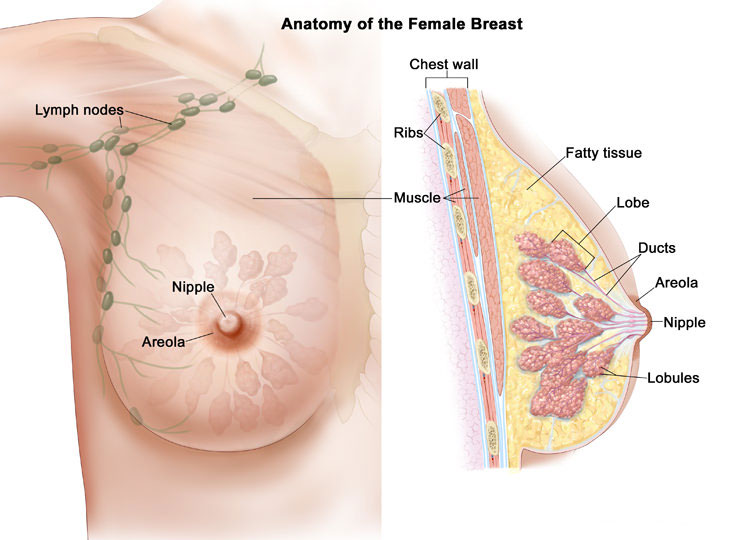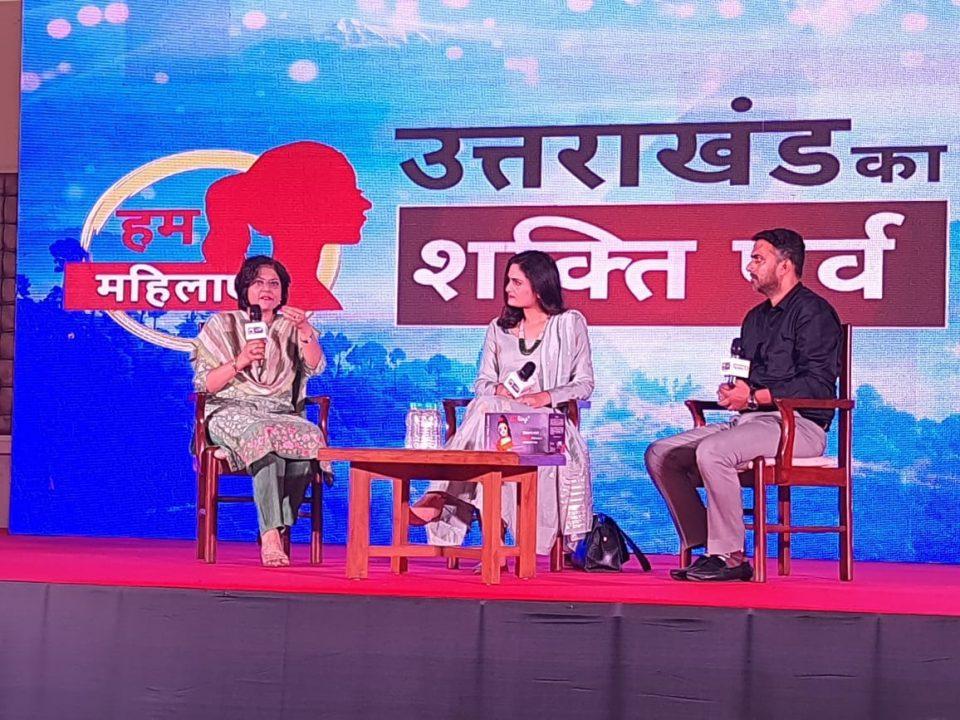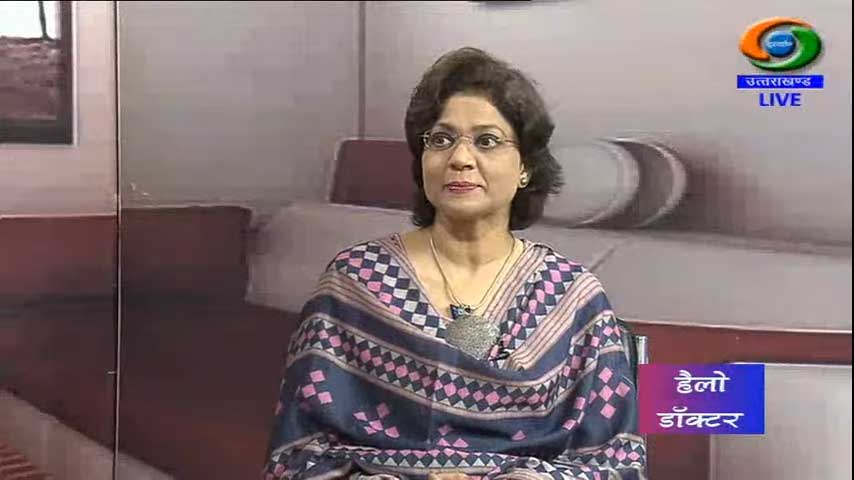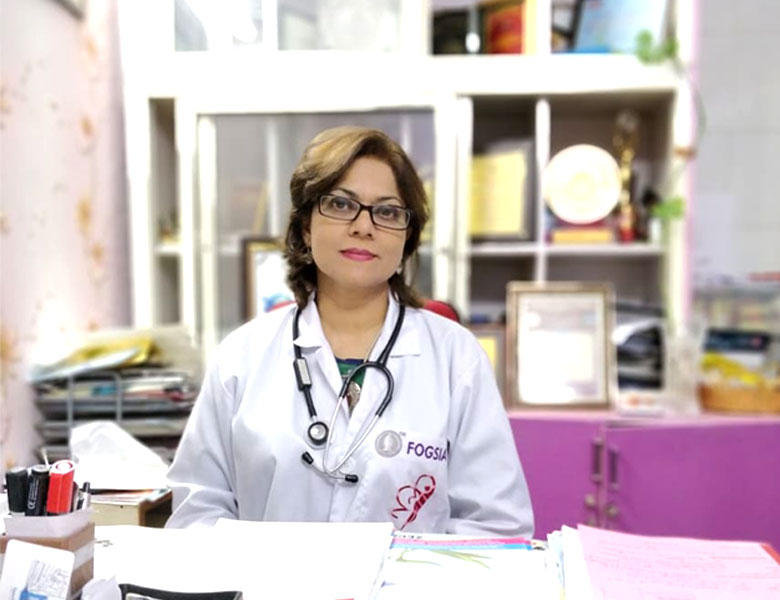How breast cancer starts and expands
Free Breast Cancer Screening camp organized on National cancer screening day at Coronation Hospital Dehradun
May 21, 2018Third Free Breast Screening Camp organized at Coronation Hospital, Dehradun
June 27, 2018How breast cancer starts and expands
What breasts are made of, and where and how cancer starts.
Breast tissue is positioned in the breast, upper chest and the armpit. Each breast consists of 15-20 glands known as lobes, the place milk is produced. These lobes are connected to the nipple by tubes known as ducts. The structure of the lobes and ducts is a little bit like the branches of a tree. Breast cancer commonly begins within the lobes.
 The rest of the breast is made of fatty tissue. The breast and armpit also consist of lymph nodes and vessels carrying lymph fluid, which are part of the immune system. Breast cancer can often propagate to other parts of the body via this lymph system or blood vessels.
The rest of the breast is made of fatty tissue. The breast and armpit also consist of lymph nodes and vessels carrying lymph fluid, which are part of the immune system. Breast cancer can often propagate to other parts of the body via this lymph system or blood vessels.
It’s pretty normal for breasts to differ a little bit in shape and size and fluctuate during periods and pregnancy. They also transform as we get older, for instance by getting softer. Being breast aware signifies getting to learn how your breasts feel and look usually or normally, so you can keep an eye out for any strange changes and get them examined by your doctor.
How do cancers start?
Our bodies are comprised of trillions of cells. You have distinct cells for various parts of your body – For instance, skin cells appear and function in a different way from liver cells. Every single cell consists of DNA, which tells the cell on the way to appear and act.
sometimes, our bodies have to build new cells to replace old ones or fix the damage. To get this done, an active cell creates an additional copy of all of its DNA and after that breaks into two, with every single new cell acquiring a complete range of DNA instructions. This procedure can occur oftentimes over and a lot of cells can be doing this at any one time.
Generally, when a cell divides, a variety of checks take place to ensure that the DNA has been duplicated accurately as well as the new cells have almost everything they really need to work effectively. If a mistake is discovered, the cells pass away.
On the other hand, if these safety checks don’t succeed, the new cells may survive with faults in them. Frequently, a mistake in DNA (referred to as a mutation) does not trigger any issues. Even so, in some cases the error can result in the new cells act unusually, breaking into irregular cells at a fast rate, developing a tumor.
Not all tumors are cancerous. If the tumor cells don’t have – and are very less likely to gain – the capability to grow into nearby tissue, they are known as benign tumors. Benign tumors usually don’t require treatment and are not cancer.
Even so, if the tumor cells have the potential to get into nearby tissues, they are cancerous. Cancers are generally treated, or else they may grow and distribute, which can be life-threatening.
Our genes, our way of life and our surrounding atmosphere can all impact our risk of developing breast cancer.
How does breast cancer grow and spread?
If neglected, breast cancers can expand larger, taking on much more adjoining breast tissue. Breast cancer that hasn’t spread over and above the breast or underarm is referred to as primary, or early, breast cancer. On the other hand, often breast cancer cells break apart from original cancer and get into the blood or lymph vessels. Traveling through these vessels, cancer cells may settle in other areas of the breast or in the lymph nodes of the breast tissue, developing new tumors. They may also distribute to other areas of the body where they’re able to form new tumors, called secondary breast cancer.



